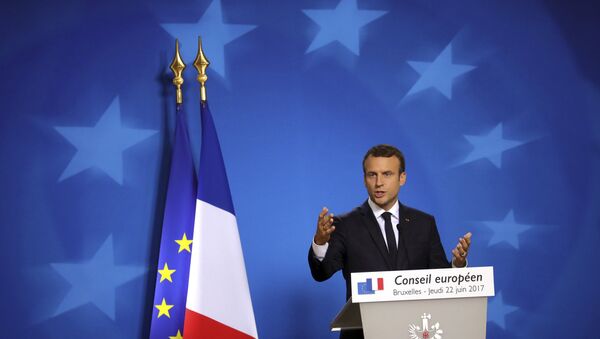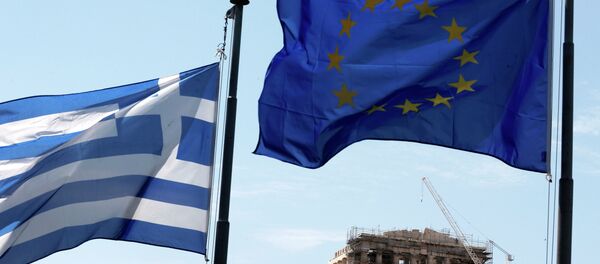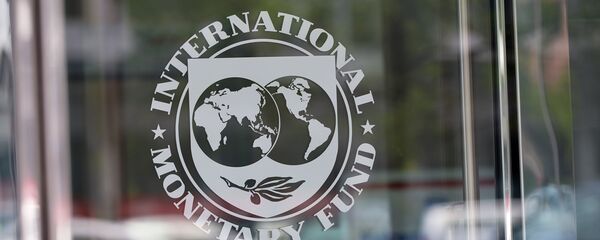The EU and IMF took the wrong approach to Greece's sovereign debt crisis and bailout, and the country's creditors should lighten their demands, French President Emmanuel Macron said in Athens on Thursday.
Macron called for an ambitious reform of Eurozone institutions that would entail the creation of a new European Monetary Fund to handle similar problems in future. He said that the IMF, which participated in the Greek bailout due to pressure from Germany, "had no place in EU affairs."
French economist Philippe Bechade told Sputnik France that "in theory, Europe is not a region in a difficult situation," and should be able to resolve its own financial difficulties without assistance from the IMF.
"Initially, the sum being talked about was 50 billion euros, which could have been quickly resolved. Germany in principle did not want to do this because it thought that German taxpayers should not have to pay for the stupidity of Greece," Bechade said.
Prior to the onset of the Greek debt crisis in 2010, the IMF's lending rules stipulated that it would only issue loans to countries which were able to repay their debts, and its resources were mainly used by smaller, developing economies. Unlike Greece, such economies have a local central bank to control monetary policy and have the option of devaluing their currency in order to boost exports and tourism.
However, fears in the EU that a default on Greek debt could spread panic throughout the Eurozone led European leaders, in particular German Chancellor Angela Merkel, to demand IMF involvement in the Greek bailout.
"Since Germany refused to assume the main financial risks by itself, the question arose, 'would it not be better to turn to the IMF,' which knows the problem well and knows how to improve the situation in the country."
"The IMF got involved in the Greek bailout "because they asked it for help. Currently, the IMF mainly helps developing countries which are in a difficult position. I don't think this applies to Greece, which is the cradle of philosophy and democracy, as Mr. Macron recalled in Athens. I don't think that it meets the criteria of countries that the IMF usually helps," Bechade said.
"The main thing is that Germany is the main investor in Europe, the largest trading power, and the influence of bilateral exchanges between Germany and other European countries has to be taken into account. Germany realized that if it demanded money from Greece, it would not get it back."

According to a 2015 Reuters special report, the decision to offer financing to Greece was taken by Strauss-Kahn and a small group of his advisers, who disregarded opposition from non-European board members.
Last year, a report by the IMF's own Independent Evaluation Office (IEO) criticized its approach to the Eurozone debt crisis, accusing the fund of making unrealistic forecasts for Eurozone economies such as Greece and Portugal, which allowed lending to occur in spite of concerns about the nation's ability to sustain the debt.
On Sunday, Tsipras urged the IMF to come to a decision on whether to participate in Greece's current bailout program after Eurozone governments approved another $10 billion loan for Greece in June.
"We can live with or without the IMF presence," Tsipras told reporters at a trade fair in Thessaloniki. "What we cannot do is live with the IMF setting one foot in and leaving one foot out."







